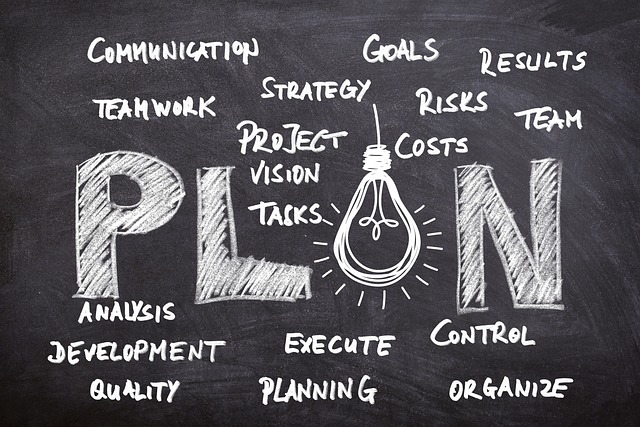The Importance of Self-Awareness in Overcoming Challenges
Self-awareness stands as a cornerstone in the journey of personal development and growth. We often hear about successful individuals, from entrepreneurs to athletes, crediting their achievements to a strong success mindset. But what fuels this mindset? Surprise! It often comes down to a deep understanding of oneself. Self-awareness involves recognizing your emotions, thoughts, and values, and how they influence your behavior. This understanding empowers individuals to face challenges head-on, making it an essential quality in attaining personal and professional success.
Let’s break down the components of self-awareness. First, emotional self-awareness refers to the ability to identify and understand your feelings. It’s easy to ignore or suppress emotions, particularly when times get tough. However, ignoring these feelings can lead to a range of issues, from poor decision-making to increased stress. When you become aware of your feelings, you can take appropriate actions rather than react impulsively. For instance, if anger surfaces in a challenging situation, acknowledging it allows for a moment of reflection rather than a knee-jerk reaction. This clarity can prevent escalation and promote constructive conversations instead.
Another key element is self-reflection. Engaging in self-reflection means periodically examining your thoughts and motivations. Why did you react a certain way to a setback? What beliefs drove your actions? By delving into these questions, you develop a richer narrative about yourself. This narrative can greatly inform how you approach future challenges. A person with robust self-awareness will leverage past experiences to navigate hurdles more effectively. Rather than feeling defeated by a failure, she might view it as a learning opportunity to grow from. This shift in perspective is a hallmark of a success mindset.
The Impact of Self-Awareness on Decision Making
Now, let’s consider how self-awareness influences decision-making. Every day, we are faced with choices. Some are relatively minor, while others have far-reaching consequences. When you possess a high degree of self-awareness, you consult your values and emotions before making decisions. This mindful process ensures your choices align with your long-term goals. For example, consider a professional at a crossroads, deciding between a stable job and a riskier entrepreneurial venture. A self-aware individual will reflect on his emotional drive for security versus his passion for innovation. By weighing these factors, he can make a choice that resonates with his true self, ultimately enhancing satisfaction and success.
Moreover, self-awareness strengthens your ability to predict how you will feel after certain decisions. This foresight helps mitigate regret and second-guessing. You might choose a career path that initially appears lucrative but doesn’t align with your core passions. Awareness of this disconnect allows you to pursue avenues that truly fulfill you rather than merely chasing external validation. Therefore, through understanding your intrinsic motivations, you can navigate the complex landscape of choices with greater confidence and clarity.
Building Self-Awareness
Recognizing its significance is one thing; building self-awareness is another challenge altogether. One effective strategy is mindfulness. Mindfulness encourages being present in the moment, which creates space to observe emotions without judgment. You might start with simple practices such as meditation or journaling. Daily journaling, for example, helps articulate feelings and thoughts. The process of writing things down not only clarifies your emotions, but it can also spotlight patterns in your thinking. Over time, these insights cultivate a deeper understanding of how your thoughts and feelings intersect with your behaviors.
Feedback from trusted friends or colleagues also plays a crucial role. Sometimes, we can’t see our blind spots. Having someone you trust provide constructive feedback can illuminate aspects about yourself you may have overlooked. They may highlight strengths that you take for granted or point out behaviors that are counterproductive. Seeking professional help, such as a therapist or coach, provides an excellent space for guided self-discovery. These professionals can employ various tools and techniques to foster self-awareness, offering a structured way to explore your inner world.
Overcoming Challenges through Self-Awareness
Once you develop self-awareness, you will find it significantly enhances your capacity to overcome challenges. Life constantly throws curveballs. Some challenges might be smaller, like handling a difficult conversation, while others can feel monumental, like losing a job. In these moments, self-awareness becomes your beacon. It allows you to identify how you feel about each challenge, recognize your typical coping mechanisms, and consider if those responses serve you well.
Let’s imagine you encounter a professional setback, such as not receiving a promotion you believed you deserved. Your initial reaction might include feelings of disappointment and frustration. A self-aware individual would take a step back, acknowledge those feelings, and analyze any underlying beliefs about success and recognition. Instead of spiraling into despair or blaming others, this individual might consider feedback provided during the review process, reflecting on areas for improvement. Such a constructive approach enables you to view a setback as a stepping stone rather than a stumbling block, reinforcing the success mindset.
Building Resilience through Self-Awareness
As you journey through overcoming challenges, self-awareness also contributes to building resilience. Resilience encompasses your ability to bounce back from adversity. Self-aware individuals often possess an innate resilience because they understand their strengths and weaknesses. They can recognize when they need support, enabling them to reach out for help instead of isolating themselves. Moreover, being aware of their emotional triggers equips them to manage stress when facing external pressures.
Visualization techniques serve as another tool for fostering resilience. Picture yourself overcoming hurdles you currently face. This exercise enhances self-belief, laying the groundwork for how you approach challenges. The more you visualize yourself successfully navigating obstacles, the more you rehearse positive outcomes, which fosters a success mindset. Instead of letting fear reign, practice visualizing scenarios where you triumph, reinforcing the idea that challenges are surmountable.
Conclusion: Self-Awareness as the Key to Success
In concluding this exploration, it’s evident that self-awareness plays a pivotal role in overcoming challenges and nurturing a success mindset. The journey isn’t always easy, but it’s rewarding. Becoming self-aware leads to improved decision-making, enhances your capacity to face setbacks, and cultivates resilience in the face of adversity. It is a lifelong endeavor that propels personal and professional growth. With time, effort, and practice, anyone can develop self-awareness, unlocking a more fulfilling and successful life.
FAQs
- What is self-awareness? Self-awareness is the ability to recognize and understand your emotions, thoughts, values, and how they influence your behaviors and interactions.
- How can self-awareness help me overcome challenges? Self-awareness equips you with the necessary insight to understand your reactions to challenges, enabling you to make informed decisions and respond thoughtfully rather than impulsively.
- What are some strategies to develop self-awareness? Strategies to enhance self-awareness include mindfulness practices like meditation and journaling, seeking feedback from others, and working with therapists or coaches.
- Can self-awareness improve my decision-making? Yes, high self-awareness allows you to align your decisions with your core values and long-term goals, leading to more fulfilling outcomes.
- How does self-awareness contribute to resilience? Self-aware individuals are better equipped to understand their emotional triggers and seek support, enhancing their ability to bounce back from adversity.



